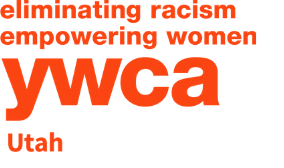Liz Owens: How we can trust the truths we do not live in

After completing my bachelor’s degree in Utah County, I moved to England to pursue my postgraduate degree in human rights at the University of Essex.
As I advanced through my education, I continued to develop and deepen a framework for understanding my life, and the world, through both dimensions of difference and broadly shared experiences.
My professional experience spans a variety of roles, from crisis line volunteer to victim advocate, to political organizer and program and project supervisor, to executive director and governing board officer. My career has focused on the intersectional experiences of marginalized groups of women.
Central to my work is addressing violence against women in domestic, intimate and social as well as state violence (including state supported sexism, racism and patriarchy). I’ve witnessed many truths through my extensive work history.
From one job to the next, I never knew exactly where I was headed. My goal was not CEO of YWCA Utah, it was always ever to do something that mattered to me, that made a difference in my community. I’ve always strived to let the things that rile me up, that make me feel something, actually move me to act
Our mission at YWCA Utah, to eliminate racism and empower women, made coming to the Y natural for me. It feels like I’ve been preparing for this role my whole life. YWCA’s mission speaks to me, it moves me and inspires me. It’s bold, it’s visionary, it’s powerful and there are endless possibilities for how we meet and live up to that mission.
Race and gender have had a significant impact on the way I experience the world and, like the experiences of violence and trauma many of our participants have endured, it can sometimes be difficult for others who have not shared similar experiences to truly understand them. I think we all need to learn to trust the truths we do not live in.
When you truly connect with anyone, you begin to know their own unique experiences, opinions and outlooks, which inform the way they see and understand the world. Some of their truths, we do not live in. It’s just as important to spot the patterns, take the macro view and understand what connects us all. What makes us neighbors, what makes us community, what makes us family and makes us human.
The words of YWCA’s mission require us to consider what difference does difference make? Why racism? Why women? I believe understanding and honoring difference is what brings us closer as a community and closer to our goal of race and gender equity – it helps us create genuine connections of knowing and seeing each other. Our differences make us stronger as an organization.
Truly understanding and honoring difference is how we begin to learn and expand and incorporate new and different perspectives to become better.
Our mission at YWCA is more than words – it’s the way we live our lives. It is the way we see each other, hold each other accountable to do better, serve our community and honor the humanity in each of us. It’s a way of living, of believing, of connecting and of doing.
The people we serve, the staff who show up to do this work each day, who move the mission forward, inspire me. They encourage me to push forward, seize new opportunities, and make sometimes scary, but always important, decisions that lead to change.
At the end of the day, YWCA Utah is really about what connects us in community. It’s about the hundreds of women and children who live on our campus, seeking safety and security. It’s about our team who are committed to showing up as our best selves in the most difficult of times. And it’s about our larger community that supports us and makes our work possible through partnering, donating, and volunteering.
My work, YWCA’s work, is about seeing, celebrating and honoring difference as we connect, collaborate, and work together to make our community healthier, safer and stronger.
It’s about learning how to trust the truths you do not live in, and to understand what difference difference makes to make deeper positive impact, while recognizing that both of these actions are in the service of nurturing and cultivating connection to build happier, more inclusive communities for all.
